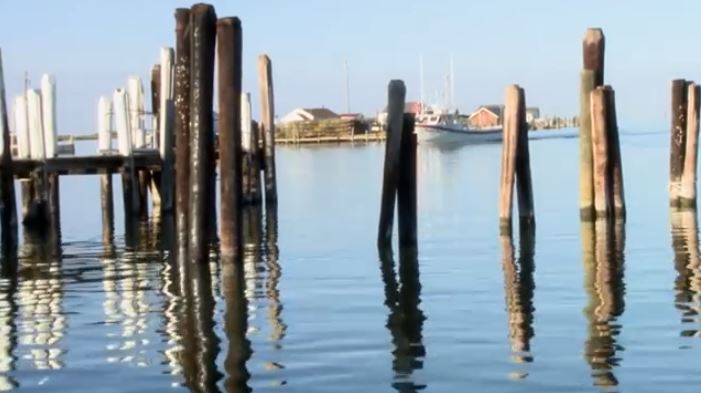Here is the video about Tangier Island, Virginia, by filmmaker Jenny Roberts, referenced in Garth Woodruff's article "Solastalgia: When Familiar Spaces Shift and Change" in the August SpinSheet.
Here's an excerpt from Woodruff's upcoming SpinSheet article:
Solastalgia is a neologism for the emotional distress caused by such an environmental change or existential woes that impact us as we see our homes and familiar spaces shifted, never to be the same again. Nostalgia is easily understood as homesickness (leaving home), where solastalgia explains that similar feeling or pathos when we recognize earthy spaces like home, but we aren’t gone from them; rather they leave us through environmental shifts. Often these are defined by environmental abuses: for instance, flat-topping a mountain that once was picturesque but now is gone...
Here's a bit from Mary Papenfuss's article in the Huffington Post:
Tangier has lost nearly 70 percent of its land mass since 1850, losing up to nine acres each year. The U.S. Army Corps of Engineers predicts rising waters and erosion will be so dire in 20 years— even fewer in the event of a major storm — that the remaining residents will be forced to abandon the Chesapeake Bay island. The population has already shrunk from 1,500 to 450.
From Christian Still's article "On Tangier, a Disappearing Island":
After walking the island and reading the historical signs in the streets, one gets the sense that the heyday of Tangier, once home to movie theaters, factories, stores, and an opera house, is long past. The population has declined from about 1,500 at one point to a third of that today, and the total drops every year.
One of the main reasons for that may be that the island itself is disappearing.
Records indicate that in the mid-1800s, Tangier Island encompassed some 2,062 acres. It was home to watermelon farms, grazing cows, and a variety of plant life. In 1997, the total land mass amounted to just 768 acres, of which just 83 acres are habitable. Today, the island is even smaller.
While Tangier Island has been slowly losing ground to erosion for hundreds of years, the combination of rising sea levels and more devastating weather—both spurred by global warming—have greatly increased the rate of land loss. Until around 1900, sea levels in the Chesapeake Bay rose at an average of three feet per thousand years, geologists calculate. However, the rate greatly increased in the 100 years that followed, seeing levels already increase by one foot and growing. Research shows that Tangier is now losing nine acres of land a year to erosion and rising tides.





